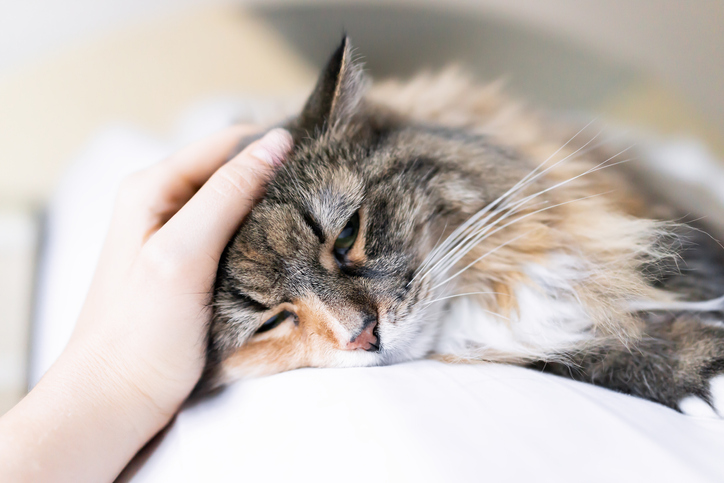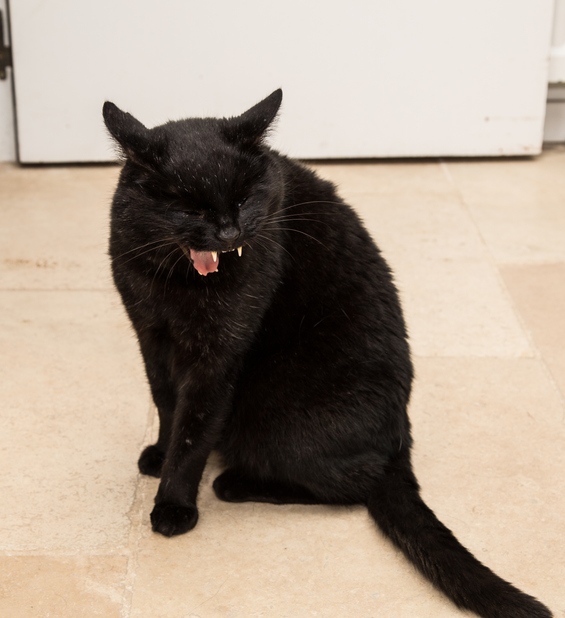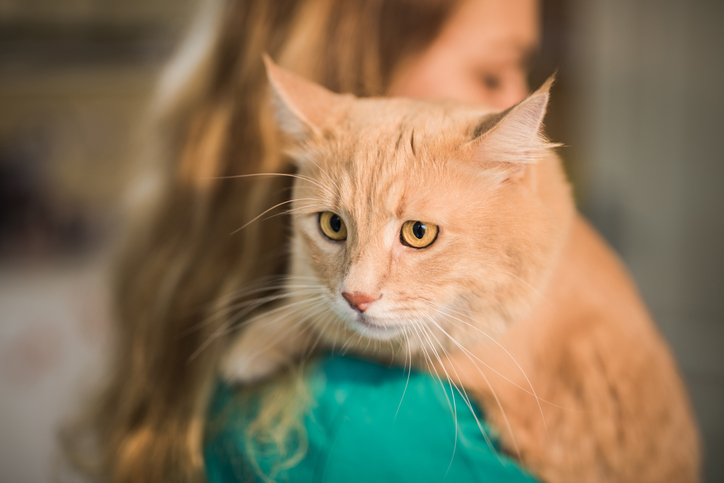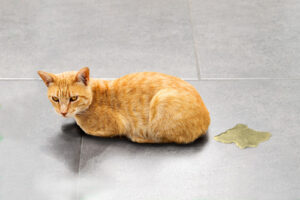The health of your cat is important to you and it is essential to be aware of the signs and symptoms that may indicate when your cat is sick. Knowing the common signs and symptoms of illness in cats can help you identify potential problems quickly and get your cat the care they need.
If your cat is exhibiting signs of being sick, it is important to seek veterinary care as soon as possible. Common signs and symptoms of your cat being ill include decreased appetite, lethargy, vomiting, diarrhea, coughing or sneezing, and changes in behavior or activity level. If you notice any of these symptoms in your cat, it is important to take them to the vet for an evaluation.
Cats can be prone to illness, and it’s important to be aware of the signs and symptoms that may indicate that your furry friend isn’t feeling well. To help you recognize these signs and symptoms, it’s a good idea to get to know your cat’s typical behavior and habits and to pay close attention to any changes you observe. By being proactive and seeking help when necessary, you can help ensure the health and well-being of your beloved feline companion.
How to Tell if Your Cat Is Sick
It can be difficult to tell when a cat is sick, as they are often good at hiding their discomfort. However, there are certain signs and symptoms that may indicate that your cat is not feeling well. It is important to be aware of these signs and to speak with your veterinarian if you notice any changes in your cat’s behavior or health. In this article, we will discuss some common signs and symptoms of illness in cats and provide tips on how to recognize them.
Lethargy
Lethargy, or a decrease in energy and activity level, can be a sign that a cat is unwell. Cats may become lethargic due to a variety of underlying conditions, such as infection, inflammation, or organ dysfunction. Lethargy can also be a sign of stress or anxiety.

Changes in Eating Habits
Changes in eating habits can be a sign that a cat is unwell. Cats may eat less than usual or refuse to eat altogether if they are feeling sick. This can be a sign of a variety of underlying conditions, such as dental issues, digestive problems, or organ dysfunction. If your cat’s appetite changes significantly or if they stop eating altogether, it is important to speak with your veterinarian as soon as possible to determine the cause and provide appropriate treatment.
Vomiting or Diarrhea
Vomiting and diarrhea in cats can be signs of illness. Vomiting is the act of bringing up the contents of the stomach, while diarrhea is the passage of loose or watery stools.
There are many potential causes of vomiting and diarrhea in cats, including:
- Infections: Cats can get infections from bacteria, viruses, or parasites that can cause vomiting and diarrhea.
- Food intolerance or allergy: Cats may have an intolerance or allergy to certain ingredients in their food, which can cause digestive issues.
- Foreign bodies: Cats may swallow foreign objects, such as toys, bones, or string, which can cause an obstruction in the digestive system and lead to vomiting and diarrhea.
- Chronic medical conditions: Certain medical conditions, such as inflammatory bowel disease or liver disease, can cause persistent vomiting and diarrhea.
Coughing or Sneezing
Cats can sometimes cough or sneeze when they are sick. Coughing or sneezing may be a sign of an infection, such as a cold or respiratory infection. It can also be a sign of other medical conditions, such as allergies or asthma. If your cat is coughing or sneezing persistently, it is important to consult with a veterinarian to determine the best course of treatment for your pet.

Change in Urination Patterns
A change in urination patterns can be a sign that your cat is sick. Some possible changes that may indicate a health issue include decreased or increased frequency of their urination, difficulty urinating, and changes in the appearance of the urine. If you notice any changes in your cat’s urination patterns, it is best to speak with a veterinarian as soon as possible. Left untreated, urinary issues can lead to serious health complications.
Weight Loss
Weight loss can be a sign that your cat is sick. There are many potential causes of weight loss in cats, such as infections, chronic medical conditions, dental issues, and behavioral issues.
What To Do When Your Cat is Sick
If you suspect that your cat is sick, it is important to take a few steps to help your cat feel better and get back to good health. Here are some things you can do:
- Visit Your Veterinarian: The most important thing you can do is to take your cat to the veterinarian. Your veterinarian will be able to diagnose your cat’s condition and provide the appropriate treatment.
- Observe Your Cat’s Behavior: Pay close attention to your cat’s behavior and keep track of any changes you notice. This can help you provide your veterinarian with valuable information about your cat’s condition.
- Check for Fever: If your cat is running a fever, it may be a sign of an infection or other medical condition. You can check your cat’s temperature with a rectal thermometer or by using a digital thermometer designed for cats.
- Create a Safe and Stress-Free Environment: Cats can become stressed when they are sick, so it is important to create a calm and quiet environment for them to rest and recover.
- Make Dietary Changes: If your cat has a specific health condition, your veterinarian may recommend making changes to your cat’s diet. Follow your veterinarian’s recommendations to help your cat get the nutrients they need to feel better.
Remember to follow your veterinarian’s instructions and continue to monitor your cat’s health to ensure a full recovery.
Conclusion
By being aware of the signs and symptoms of illness in cats, you can identify potential problems quickly and get your cat the care they need. Early detection of illnesses can help ensure that your cat receives the best treatment possible and enjoys a long, healthy, and happy life!
If you have any questions about your cat’s health please call us at (908) 359-2000 or schedule an appointment with us! Here at Harlingen Veterinary Clinic, we are ready to help you and your pet!






